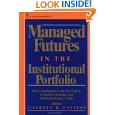
There is more bad news for hedge funds, which saw $1 trillion in redemptions in 2007-2008.
A new study in Alpha magazine study shows there is more good reason to question hedge funds. The reason: Most do not even beat the S&P 500 index.
Plus, the managers also don’t pay their full share of taxes due to their special “carried interest” status they earned thanks to their lobbyists.
This Alpha magazine study is also important because the PBS Frontline show (“The Retirement Gamble” which aired April 23, 2013) also focused on fees for the lowly 401(k) investor and how those fees ripped them off, as well. So now we see that the top 1% of Americans who invest in hedge funds, as well as the other 99% of Americans who have 401(k)s and also pay high fees, all are getting victimized by fees.
So while hedge funds are billed as “all weather” funds which can make money in all market conditions, it is now clear that only the managers make money in all market conditions since hedge fund investors pay high maintenance fees just to be associated with these alleged exceptional market-beating performers.
Some specifics from the study published in Institutional Investor’s Alpha and the Economist magazine found the following:
–All hedge funds generally returned a mere 6% in 2012, their tenth straight year of under-performing the S&P 500 index, the Economist noted recently. This is not only a bad return, but these sophisticated investors also paid hefty fees just to be in the hedge fund in the first place.
This period includes 2008, the first full year of the historic recession, when hedge funds and their alternative strategy trading should deliver exceptional performance due to their touted ability to trade markets under all market conditions.

This was noted in my book, Managed Futures in the Institutional Portfolio (Wiley 1993) which presented why managed futures, a sub-category of hedge funds, had the ability to employ long-short, leverage and opportunistic strategies worldwide to beat the markets. At least that was the theory.
But that has not been the case over the last few decades for the industry as a whole. This is what prompted the Economist to note: “The average hedge fund is a lousy bet.”
But the hedge fund industry want the public to believe otherwise. What hedge funds want the public to believe is they should not be regulated, they deserve special tax status and should not pay the same tax rate as other companies, they are smarter than all other types of professional investors, they create jobs, they provide complete diversification and should be part of every institutional and high net-worth portfolio, and there is a great benefit to keeping their returns secret.

CNBC’s JIm Cramer ran a hedge fund and notoriously refused to reveal its track record. But that was just another classic case of “Do as I say, not as I do.”
The rankings,as first reported in the New York Times, began their story with the fact that which led off with the fact that few of these managers beat the market. After all, why would any sane investor pay the high fees (maintenance and performance) that hedge funds traditionally charge.
Yes, most hedge funds have a “hurdle rate” in place which means investors do not pay a hefty 20% to 30% of new profits unless the fund posts a new high return over the past quarter, but investors still have to pay the stiff maintenance fee so the hedge fund managers can keep the computers on and pay their lobbyists.
Bridgewater Associates Executive Ray Dalio was No. 2 on the Institutional Investors list, with take-home pay of $1.7 billion, even though Bridgewater’s top fund, Pure Alpha, returned a mere 0.8% in 2012.
In contrast, the S&P 500 gained 13.4%last year and returned nearly 16% when you include dividends.











